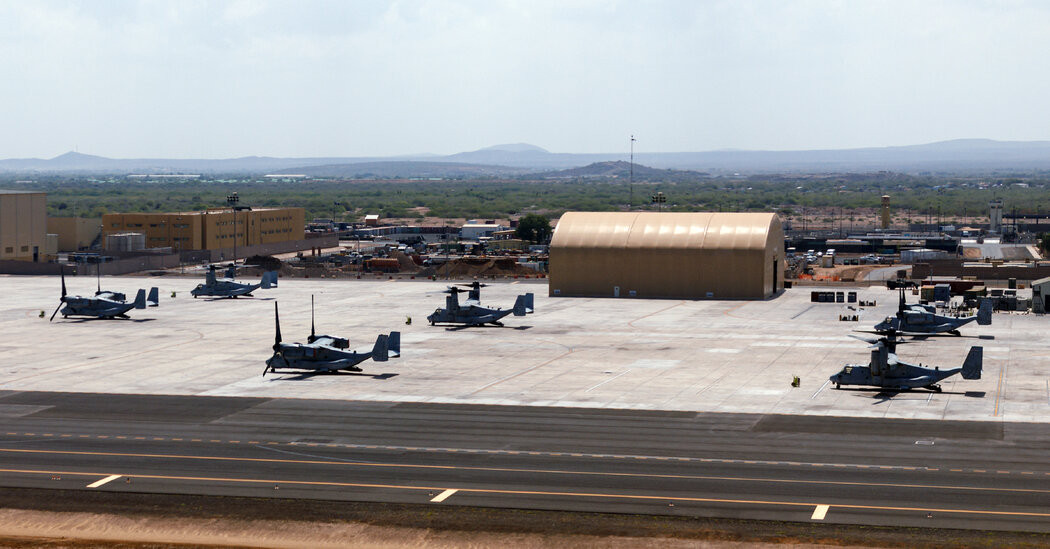

Courts blocked the handover after lawyers raised concerns of torture. Then the Supreme Court intervened to allow the Trump administration’s plan to move forward.
A flight carrying eight men who had been held for weeks on a U.S. military base in Djibouti landed in South Sudan just before midnight Friday, officials said, bringing an end to a six-week legal battle that was resolved by an emergency intervention by the Supreme Court.
The U.S. military plane took off around 8:30 p.m. Eastern time, according to Tricia McLaughlin, a Homeland Security spokeswoman. A picture shared by Homeland Security showed the men apparently aboard the airplane, handcuffed and shackled at their ankles, surrounded by uniformed personnel.
It remains unclear whether South Sudan’s government in Juba has detained the men, or what their ultimate fate might be. The 13-year-old country is on the brink of a civil war; the State Department has warned against travel there because of the risk of “crime, kidnapping and armed conflict.” In court on Friday, a Justice Department lawyer read from a diplomatic note that said South Sudan would give the men immigration status to allow them to remain there at least temporarily.
The flight marks the end of a saga in which the eight men had been shackled for weeks inside an air-conditioned shipping container on a U.S. military base in Djibouti, in the Horn of Africa. Before coming to the United States, the men hailed from Vietnam, Mexico, Laos, Cuba and Myanmar. Just one is from South Sudan, a violence-plagued country. All had been convicted of serious crimes in the United States, though many had either finished or were about to finish serving their sentences.
At issue in the lengthy legal battle was how much due process the government needs to provide to migrants before deporting them to so-called “third countries,” places other than where they are from, and where they might be at risk of torture. Federal law places limits on deportations to places where migrants’ “life or freedom would be threatened.” The principle that migrants should not be deported to places where they would be at risk of torture or persecution is enshrined in international law.
The Supreme Court twice weighed in, each time agreeing that the Trump administration could send the men to South Sudan.


![[GOOD PRESS] ON[GOOD PRESS] ON](https://georgemagazine.com/wp-content/uploads/2024/08/16389056566437433941_2048-300x300.jpeg)
